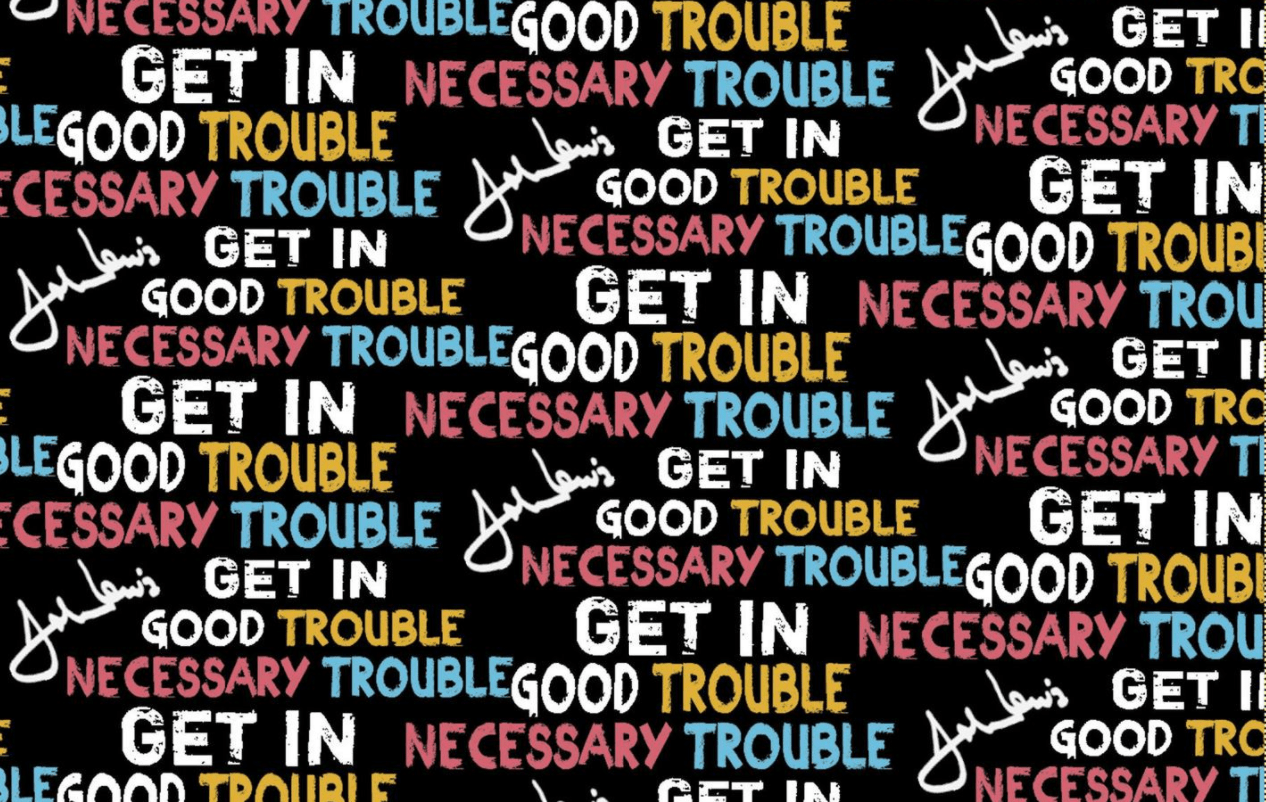
Each month, our Happiness and Wellness Initiative will share "Some Good News" from the SPH and our extended community. You can submit your own good news by email to: happyandwell@umd.edu.
Rep. John Lewis spent decades of his life working as an organizer and activist to further racial justice, equity and to address intersecting issues of inequality. With wisdom from his longstanding years of anti-racist activism and service in the House of Representatives (1987-2020), Rep. Lewis often reminded society to be in the struggle, and do so with hope and optimism. In a 2018 tweet, he encouraged those engaged in social justice activism, “Never, ever be afraid to make some noise and get in good trouble, necessary trouble.”
This ‘Good Trouble’ legacy is one that has and continues to inspire the masses, including assistant professor Jennifer D. Roberts (KNES). Roberts' scholarship focuses on the impact of built, social and natural environments, including the institutional and structural inequities of these environments, on the public health outcomes of marginalized communities.
Recently, as Roberts was submitting a paper examining the impacts of COVID-19 in the context of structural inequalities, systemic racism and health inequities, she was faced with a journal’s editorial status quo practice. Specifically, questions were raised regarding terminology, such as "systemic racism" and "pathologizing of race," as well as the context of socioeconomic and racial inequities pushing the limits of the journal’s scope.
As lead author, Roberts, along with her co-authors, pushed against these constraints. They emphasized the importance of plain and even forceful language to address the urgent and real problem of how systemic racism directly impacted the findings of their research. They put forward their lens of racial justice and used an unapologetic, yet informative, vernacular to create an awareness that would challenge readers' existing ideologies on systemic racism and health inequities. As a result of Roberts' activism, they achieved both individual success and structural change. The journal has since broadened its scope and scholarship to be more inclusive in thought, approach and language.
“On so many levels, I am thrilled about this paper acceptance. In a nutshell, it felt good to get into some good and necessary trouble,” said Roberts.